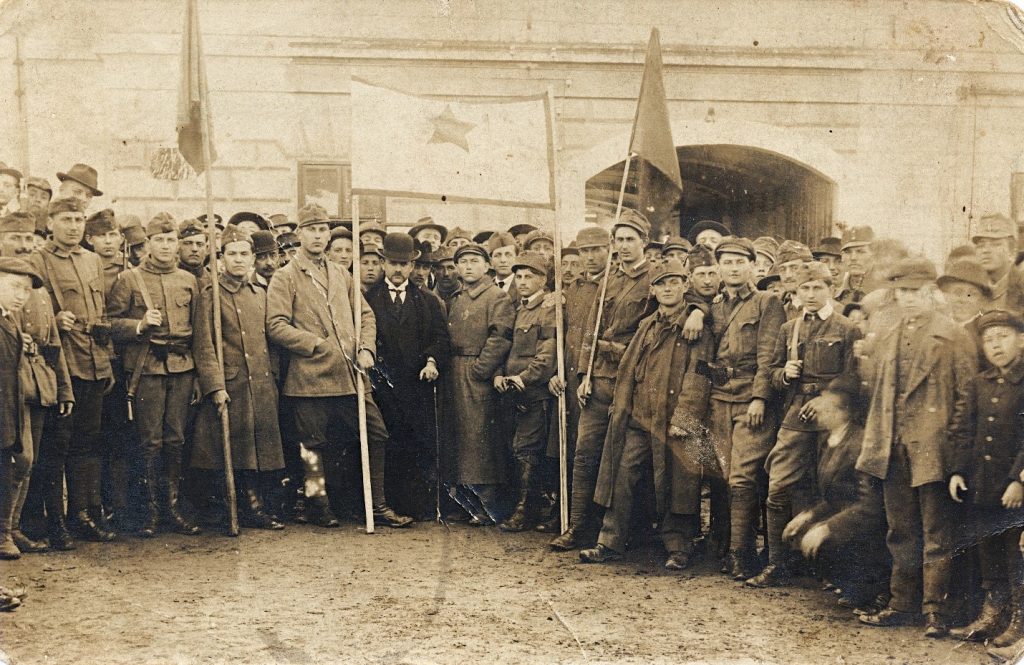When you think of Dracula, there are a few things that probably come to mind. A man with a hypnotic gaze. Slicked back black hair. A thick European accent that seems to beckon one towards them. What you are thinking of is the performance of the late, great Béla Lugosi, the quintessential face of Dracula from the 1931 Universal film adaptation of the novel and 1927 play… Of which he also played Dracula, having been referred to as the ‘Laurence Olivier of Hungary.’ No small words of praise.
But of course, we all know of this Dracula performance, how exactly was he a socialist? Sad to say, the screen Dracula still only likes red in the form of blood, not revolution. It’s the man behind the character that has a fascinating history in the socialist movement. You see, Lugosi ran away from home at the age of twelve to pursue his dream of acting, at that time a very unrespected position that his father wanted him to have no part in. Alas, acting roles don’t fall into a twelve-year-olds’ lap very easily, so working as a miner for a few years had to substitute… You see, this was Austria-Hungary in the tail end of the 1800s, you don’t really see much in the way of solid labour laws.
At last in 1902, at the age of twenty, Lugosi got his first acting roles and became a near-overnight star in his homeland. He never forgot his roots in hard labour and developed strong convictions for workers rights, far and away from the cushy celebrity status one would see in the modern-day. Even as a star, his rights were few and his pay low, certainly not helped by the collapse of the Austro-Hungarian empire several years later in 1918, leaving him in a newly independent and thoroughly incensed Hungary. While many would wish for quick stabilization of the status quo, Lugosi sought no such easy ways out. The Bolshevik Revolution in Russia had exploded and with it, the idea of revolutionary socialism became a tantalizing promise for the impoverished and struggling countries of the world.
Hungary was in dire straits with multiple powers vying for influence. In the main urban areas surrounding the center of Budapest, the Social Democrats and the Communist Party were the primary influential forces. The communists grew ever stronger as conditions worsened, with social democrats eventually entering into a coalition to attempt to preserve some level of national unity. By mid-March of 1919, the Communists far outnumbered the social democrats and a political purge began, resulting in the creation of the Hungarian Soviet Republic, a briefly existing socialist state that encompassed about 25% of Hungary’s territory from around the capital of Budapest.
Anyway, back to Lugosi. Given that this new socialist government immediately introduced previously unheard of privileges like legal protections for minorities, higher wages and a strict 8-hour workday, it was natural for the labour-inclined Lugosi to come to their side. He led a demonstration of actors in March of 1919, the same month as the revolution, then helped to found the Free Organization of Theatrical Employees which was to become the world’s first film actors union, the National Trade Union of Actors.
Lugosi later found himself a regular contributor to ‘The Actors Page,’ a paper from the time, making his thoughts quite clear in its pages. “The former ruling class kept the community of actors in ignorance by means of various lies, corrupted it morally and materially, and finally scorned and despised it for what resulted from its own vices. The actor, subsisting on starvation wages and demoralized, was often driven, albeit reluctantly, to place himself at the disposal of the ruling class. Martyrdom was the price of enthusiasm for acting.”
Alas, Lugosi’s dream of a socialist haven for actors was dashed with the overthrow of the Hungarian Soviet Republic on August 6th of 1919, a mere few months into its existence. It simply had too many enemies and also few allies, with military forces from Romania being the primary aggressor. What followed was a retaliatory ‘white terror’ from the reactionary forces of Hungary, forcing him to flee to Vienna and later America by December of 1920.
It would be easy to see this as perhaps a passing phase in his life. Caught up in the chaos of war and revolution, passions run hot, and some time and distance can make all the difference surely. Not so. Even in America, Lugosi was a major activist in the Screen Actors Guild, serving on the advisory board and actively organizing on set. (Incidentally, Boris Karloff, the best-known screen actor of Frankenstein, was also a member.)
Lugosi kept to a militant side as well, assisting in the formation of the Hungarian-American Council for Democracy and agitating against fascism in Europe, wishing for military intervention against the Nazi hordes that America was indifferent to at this time. From here, information seems to become rather scarce. The twilight years of Lugosi’s life became far more known for his battles with drug addiction, relative obscurity and friendship with director Ed Wood, supposed ‘worst director ever,’ which was dramatized in the classic Tim Burton movie ‘Ed Wood.’
It’s perhaps appropriate that film’s greatest bloodsucker was himself such a vocal opponent of the corporate bloodsuckers that still malign the industry today. While the political legacy of Lugosi is largely forgotten, the continued existence of actors unions can stand, in some way, as a monument to that legacy.



